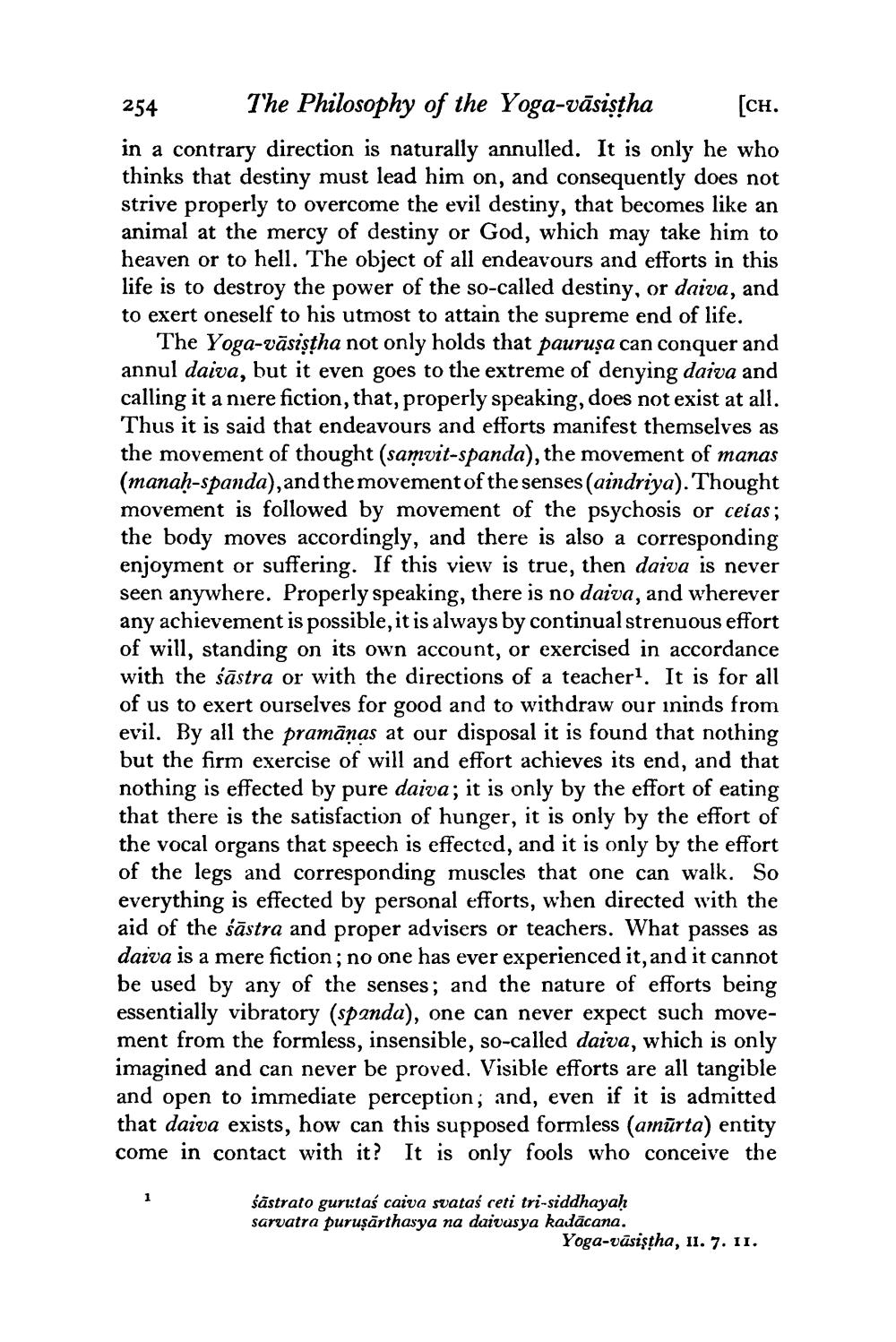________________
254 The Philosophy of the Yoga-vāsiştha [ch. in a contrary direction is naturally annulled. It is only he who thinks that destiny must lead him on, and consequently does not strive properly to overcome the evil destiny, that becomes like an animal at the mercy of destiny or God, which may take him to heaven or to hell. The object of all endeavours and efforts in this life is to destroy the power of the so-called destiny, or daiva, and to exert oneself to his utmost to attain the supreme end of life.
The Yoga-vāsiştha not only holds that pauruşa can conquer and annul daiva, but it even goes to the extreme of denying daiva and calling it a nere fiction, that properly speaking, does not exist at all. Thus it is said that endeavours and efforts manifest themselves as the movement of thought (samvit-spanda), the movement of manas (manaḥ-spanda), and the movement of the senses (aindriya). Thought movement is followed by movement of the psychosis or ceias; the body moves accordingly, and there is also a corresponding enjoyment or suffering. If this view is true, then daiva is never seen anywhere. Properly speaking, there is no daiva, and wherever any achievement is possible, it is always by continual strenuous effort of will, standing on its own account, or exercised in accordance with the sāstra or with the directions of a teacher. It is for all of us to exert ourselves for good and to withdraw our ininds from evil. By all the pramāṇas at our disposal it is found that nothing but the firm exercise of will and effort achieves its end, and that nothing is effected by pure daiva; it is only by the effort of eating that there is the satisfaction of hunger, it is only by the effort of the vocal organs that speech is effected, and it is only by the effort of the legs and corresponding muscles that one can walk. So everything is effected by personal efforts, when directed with the aid of the śāstra and proper advisers or teachers. What passes as daiva is a mere fiction; no one has ever experienced it, and it cannot be used by any of the senses; and the nature of efforts being essentially vibratory (spanda), one can never expect such movement from the formless, insensible, so-called daiva, which is only imagined and can never be proved. Visible efforts are all tangible and open to immediate perception; and, even if it is admitted that daiva exists, how can this supposed formless (amūrta) entity come in contact with it? It is only fools who conceive the
śāstrato gurutaś caiva svataś ceti tri-siddhayah sarvatra puruşārthasya na daivusya kadācana.
Yoga-vāsiştha, 11. 7. 11.




